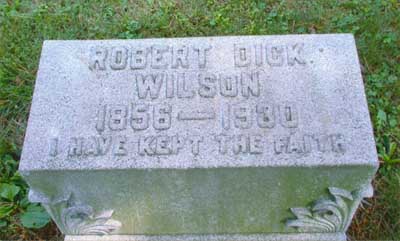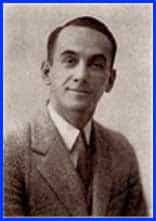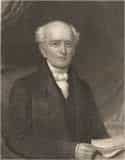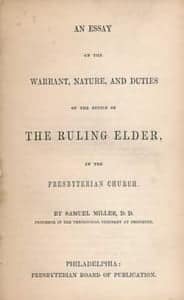EDWARD PORTER HUMPHREY, D.D., L.L.D., was the eldest son of Rev. Dr. Herman and Sophia Port Humphrey, and was born in Fairfield, Conn., January 28, 1809, and died in Louisville December 9, 1886.
He was from one of the oldest English-American families. The first of his ancestors in England were those who followed William the Conqueror from Normandy in 1066. Dr. Herman Humphrey, the father of Dr. E. P. Humphrey, was for twenty-two years president of Amherst College. One can trace in the father’s character and career a marked similarity to the character and career of his eldest son, the Rev. Dr. E. P. Humphrey. Both were eminently successful in the pulpit and in their services among the people. Both were distinguished teachers, excelling in clearness of mind and in lucidity of statement. Both were wide in their sympathies, counting nothing beyond them when their fellow-men were concerned. Each after retiring from active service lived to enjoy the honors and esteem of those whom they had served so faithfully, and yet each was, to the quiet close of an eventful life, untiring in all the labors of which his constitution was capable. One might write of Dr. E. P. Humphrey as was written of his father, “As the years went on the position accorded him in the town was phenomenal.
In connection with many families his relationship was truly patriarchal. Their homes, their tables, their gardens with all they contained of bounty or fruitage were as open to him as if each had been his own. The sick and the dying watched eagerly for his coming, and for the comfort of his ministrations, and when some heavy sorrow fell with crushing weight upon a household the most natural cry seemed to be: `Send for Doctor Humphrey.'”
Dr. Edward Porter Humphrey’s youth was spent in Connecticut. He was prepared for college at the academy in Amherst, Massachusetts, and in 1828 he graduated with honor from Amherst College. In 1831-32 he was principal of the academy at Plainfield, Connecticut. During this time he pursued his theological studies, and in 1833 graduated at the Andover Theological Seminary. His inclination led him to begin his ministry in the Southwest, and during the year 1834 he labored in connection with the Presbyterian church in Jeffersonville, Indiana.
In 1835 he became pastor of the Second Presbyterian church in this city. He gave himself completely up to work in the interest of his church for eighteen years, and his influence was felt, not only in its rapid and permanent growth, but also in a marked degree throughout the city, and in the entire denomination to which he belonged.
Dr. Humphrey, as early as 1852, was elected Moderator of the General Assembly of the then Old School Presbyterian Church, and his sermon, called “Our Theology,” preached at Charleston, S. C., as retiring Moderator, was circulated by the Presbyterian Board of Publication for many years after. Dr. Humphrey preceded Dr. Stuart Robinson as pastor of the old Presbyterian church on Third street, between Green and Walnut, which was afterward converted into a theater, and is now known as the Metropolitan building. His eloquence, when pastor of this church from 1835 to 1853, won him great fame. His discourse at the dedication of the Cave Hill cemetery, in 1848, was rich in eloquence and classical learning, and strong in that faith in immortality which he taught at all time.
In 1852 he received the degree of Doctor of Divinity from Hanover College, Indiana. In 1853 he was appointed by the General Assembly of the Presbyterian Church, professor in Princeton Theological Seminary. This he declined, but soon after he accepted the professorship of Church History in the Theological College in Danville, Ky. It was during the latter years of his residence in Danville, 1851-66, that the exigencies occasioned by the bitter and disastrous civil strife called into prominence many of his distinguishing characteristics. Among these were his unwavering loyalty to the National Government, together with a magnanimity and conciliation of spirit which were potent influences in hastening the return of concord and amity, both in society and in the church. In 1866, in response to an urgent appeal, he returned to Louisville to take temporary charge of a new church made up of many members of the old Second Church, of which he had been pastor for eighteen years. The new organization was called the College Street church. His health, which had begun to fail, rapidly improved on his return to Louisville, and he became permanent pastor of the new church. Under his ministry it became one of the largest and most influential congregations in the city. In 1871 his Alma Mater, Amherst College, conferred the degree of L.L. D., on him. He continued his labors as pastor and preacher until 1880, when he retired from the active duties of his pulpit and was succeeded in the new and handsome church, which his congregation had built, by Rev. Dr. Christie.
After his retirement he engaged in literary and theological work, and spent the remainder of his life among the people to whom he had devoted himself in his early manhood. The positions which Dr. Humphrey occupied demanded rare qualities and gifts, and with these he was peculiarly endowed. His preaching, so distinctive as a simple and earnest presentation of the Gospel, enhanced in attractiveness by convincing argument and impassioned eloquence, made him distinguished as an ambassador of Christ. As a theological teacher his knowledge of history, sacred and profane, and his unique methods of imparting truth not only stimulated the imagination of his pupils, but gave them the philosophy of the subject and stores of definite information. His life covered a period in the Presbyterian church in which great questions of policy and theology were considered, and his power in the discussion of vital subjects, together with the clear and calm judgment he brought to bear upon them, impressed itself with controlling influence upon the great assemblies of the church.
His power was always the greater because of his kindly nature. In advocating measures which seemed to him of great importance one felt that his fervor was inspired by the strength and courage of his convictions rather than by any personal considerations. He was a man greatly beloved by his ministerial brethren and all who knew him, and while zealously devoted to the Presbyterian organization known as the “Old School” so long as it remained separate, he was no less earnest in his work for the unity of the Presbyterian church throughout the land, and foremost in promoting it in special crisis in later life. His theology was always conservative and fully deserved the eminence be attained by a long life devoted to a cause he loved. Dr. Humphrey was of slender figure and of about medium height. His face was expressive of high intelligence.
His general appearance, in spite of his stature, was striking. His voice, until near the end, was strong and clear, but even as he advanced in years he still retained his powers as an orator. His last few years were spent with the family of his youngest son, but he was ready on all occasions to assist with his knowledge and experience all who applied to him. He took the liveliest interest in the College Street Presbyterian church, of which he had been pastor, and the members of that congregation are among those who will most keenly feel his loss. His last public appearance was at the funeral of the late James F. Hubner, when he assisted in conducting the service.
Excerpted from Kentucky: A History of the State, by Perrin, Battle, and Kniffin, 8th ed. (1888). — http://www.rootsweb.com/~kygenweb/kybiog/jefferson/humphrey.ep.txt
For Further Study:
Archival collections at The Filson Historical Society, in Louisville, Kentucky:
1. Isaac Shelby Papers, [John Williams Jacobs, Collector], 1792-1893, 0.66 cu. ft.
Abstract: The collection primarily consists of papers of Isaac Shelby acquired from Shelby’s son-in-law, Charles S. Todd. Included are letters and autographs of prominent political and military leaders from the late 18th to mid-19th centuries. The letters discuss Indian hostilities, Ky. politics, and national affairs. Correspondents include Willie Blount, John Breckinridge, John Brown, Elijah Clark, John C. Calhoun, Henry Clay, Joseph H. Daviess, Felix Grundy, Andrew Jackson, Robert P. Letcher, George Mathew, George Nicholas, Edmund Randolph, Charles Scott, Thomas Todd, Anthony Wayne, Daniel Webster, and James Wilkinson. Subjects include Humphrey, Edward Porter, 1809-1897.
2. Pope-Humphrey Family Papers, 1807-1938, 2 cubic ft. [1058 items].
Abstract: Correspondence, 1807-1859, mainly concerning the family of Alexander Pope, a prominent Louisville lawyer, his son Fontaine, and son Henry Clay Pope during the Mexican War. Correspondence, 1860-1868, regards the family and social lives of Reverend Doctor E.P. Humphrey, a Presbyterian clergyman, his wife Martha Pope Humphrey, their daughters, and sons Edward W.C. Humphrey, and especially Alexander Pope Humphrey who attended Centre College and the University of Virginia from 1862 to 1868.
3. Yandell Family Papers, 1823-1877, 2.66 cu. ft.
Abstract: The correspondence, diaries, and medical notes of a family of KY and TN physicians. Most of the letters were written by Wilson Yandell, Lunsford Pitts Yandell, Susan Wendell Yandell, and Lunsford Pitts Yandell, Jr. The letters consist mostly of family news but also contain information relating to a variety of other topics, including medical practice,…slavery, the secession crisis, and the Civil War. Correspondents or subjects include Edward P. Humphrey.
4. Lecture notes : manuscript, Edward P Humphrey, 1856-1858, 240pp., in the Reuben T. Durrett Collection at the University of Chicago Library.
Abstract: Student notes from Edward P. Humphrey’s lectures on church history at Danville Theological Seminary in Kentucky.
Bibliography—
1848
An address delivered on the dedication of the Cave Hill Cemetery : near Louisville, July 25, 1848 (Louisville, Ky. : Printed at the Courier job-room, 1848), 32pp.; 22 cm. Appendix contains bylaws of the Board of Trustees and rules and regulations of Cave Hill Cemetery.
1849
A discourse of the spiritual power of the Roman Catholic clergy (Louisville, Hull & Brothers, Printers, 1850), 20pp.; 22 cm. Delivered before the Synod of Kentucky, Oct. 13, 1849.
1850
A discourse on the death of Gen. Zachary Taylor, delivered in the Second Presbyterian Church, Louisville, Saturday, July 13, 1850 (Louisville, Hulls and Shannon, 1850), 16pp.
Breckinridge, W.L. and Edward P. Humphrey, Theological Seminaries in the West (Louisville : Hull & Brother, 1850), 41pp.
1851
A sermon for domestic missions, preached before the General Assembly of the Presbyterian Church, by appointment, at their sessions at St. Louis, Missouri, May 1851 (Philadelphia, Published by the Board of Missions, 1851), 16pp.; 24 cm. “Thoughts on Presbyterian foreign missions” Supplement to The Home and foreign record.
1853
Address delivered before the Society of the “Phi Delta Theta,” at the Miami University, June 29, 1853 (Cincinnati, C. Clark & Co., Ben Franklin Printing House, 1853), 23pp.
Clarke, John, Robert J. Breckinridge and Edward P. Humphrey, Addresses delivered at the inauguration of the professors in the Danville Theological Seminary, October 13, 1853 (Cincinnati : Printed by T. Wrightson, 1854), 74pp.
“The Tree Known by Its Fruits,” in The Living Pulpit, or Eighteen Sermons by Eminent Living Divines of The Presbyterian Church, with a biographical sketch of the editor, by Geo. W. Bethune, D.D., edited and published by Rev. Elijah Wilson (Philadelphia : For Sale by Wm. S. Martien, 1853), pp. 374-414.
1857
Christian missions in their principles : a sermon for the Board of Foreign Missions of the Presbyterian Church, preached before the General Assembly, at Lexington, Ky., May 25th, 1857 (New York : Printed by E.O. Jenkins, 1857), 31pp. [pp. 157-184]; 22 cm. “Published by order of the General Assembly.” Detached from The Foreign missionary, October 1857.
Our theology in its developments (Philadelphia : Presbyterian Board of Publication, 1857), 90pp.
1859
Humphrey, Edward P. and Thomas Horace Cleland [1816-1892], Memoirs of the Rev. Thomas Cleland, D.D., compiled from his private papers (Cincinnati, Moore, Wilstach, Keys & co., printers, 1859), 1 p. l., [9]-199 p.
1861
Robert J. Breckinridge and Edward P. Humphrey, editors, The Danville Quarterly Review (Danville, Ky. and Cincinnati, Ohio : Richard H. Collins, 1861), Vol. 1, no. 1 (March 1861) – Vol. 1, no. 4 (December 1861).
1862 – 1864
Breckinridge, Robert J. and Edward P. Humphrey, Danville Review (Danville, Ky. and Cincinnati [OH] : Moore, Wilstach, Keys & Co., 1862 – 1864), Vol. 2, no. 1 (March 1862) – Vol. 4, no. 4 (December 1864).
1866
Address delivered before the Lexington and Vicinity Bible Society, Lexington, Ky., December 23, 1866 (Lexington? 1866), 16pp.
1873
Africa and colonization : an address delivered before the American Colonization Society, January 21, 1873 (Washington, D.C. : M’Gill & Witherow, 1873), 14pp.
1877
The color question : a letter written for the sixtieth annual meeting of the American Colonization Society, Washington, D.C., January 16, 1877 (Washington, D.C. : Colonization Building, 1877), 10pp.
1883
Believe! only believe (Philadelphia, Presbyterian Board of Publication, 1883), 14pp.; 19 cm. Tract no. 322 in the series Presbyterian Tracts.
The dead of the Presbyterian church in Kentucky : address delivered before the two synods of Kentucky at their joint centennial, held at Harrodsburg, October 12, 1883 (s.l., s.n., 1883), 20pp.
1888
Sacred history from the creation to the giving of the law (New York : A.C. Armstrong, 1888), xiii, 540pp.
Undated—
The inspiration of the scriptures (Philadelphia, Presbyterian Board of Publication, n.d.), 23pp.; 19 cm. Alliance of Reformed Churches Holding the Presbyterian System. Council paper,; no. 2; Reprinted from Report of proceedings of the Second General council of the Presbyterian Alliance (September 1880).
Contemporary interaction—
Wilson, Samuel R. and Edward P. Humphrey, Rev. Dr. Wilson’s reply to the address of Rev. Dr. E.P. Humphrey, delivered in the First Presbyterian Church, Louisville, Ky., on the evening of July 27, 1866 (Lousiville, Ky., Louisville Courier Steam Press, 1866), 20pp.
 Dr. Wilson was supremely happy in that decision. He never regretted it for a moment. He entered joyfully into the life of the new seminary, and God richly blessed him there. Then, having rounded out more than the allotted period of three-score years and ten, a Christian soldier without tarnish of compromise upon his shield, he entered into the joy of his Lord. He died early in October of 1930, at the beginning of Westminster’s second academic year.
Dr. Wilson was supremely happy in that decision. He never regretted it for a moment. He entered joyfully into the life of the new seminary, and God richly blessed him there. Then, having rounded out more than the allotted period of three-score years and ten, a Christian soldier without tarnish of compromise upon his shield, he entered into the joy of his Lord. He died early in October of 1930, at the beginning of Westminster’s second academic year.




